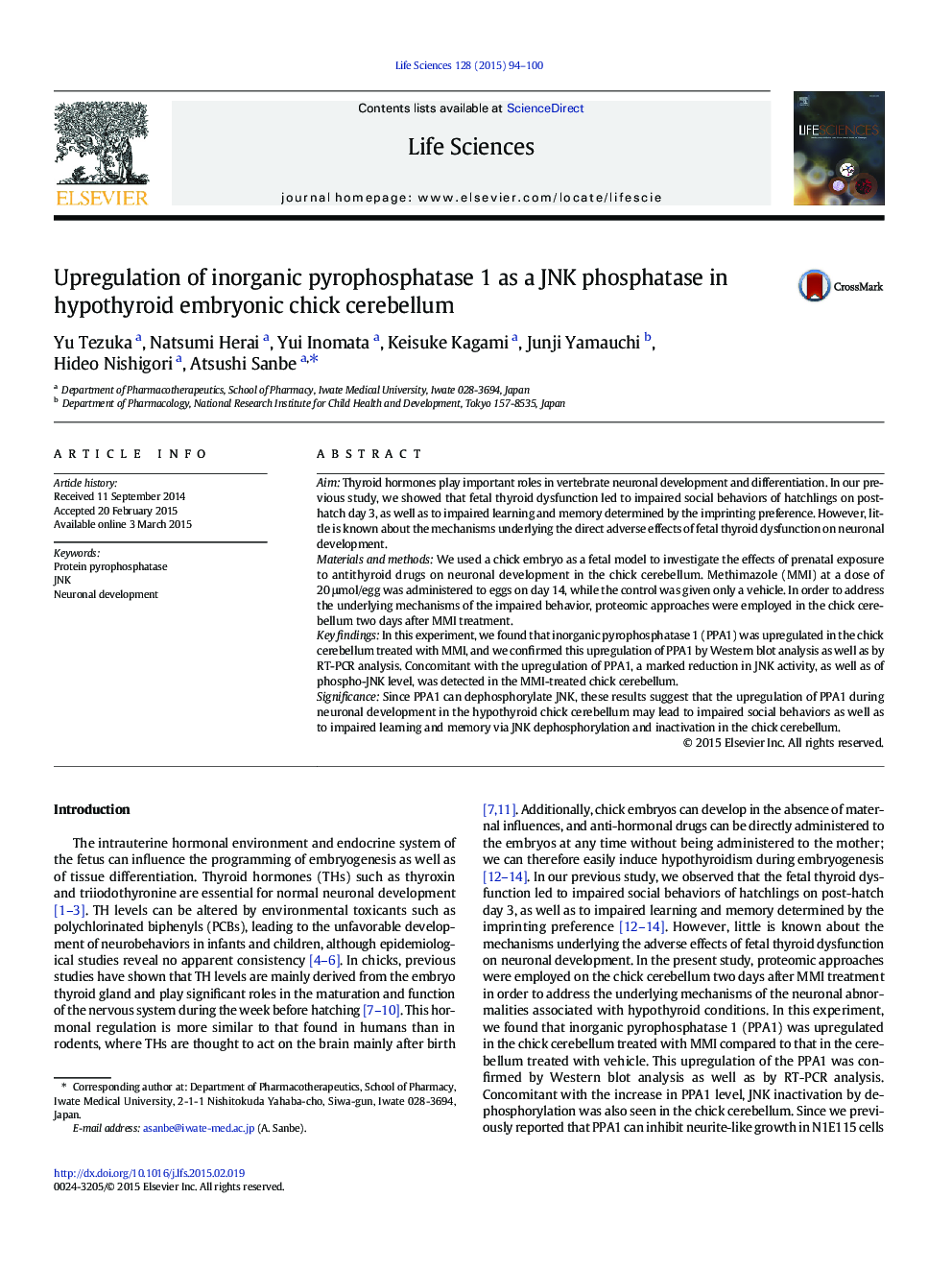| Article ID | Journal | Published Year | Pages | File Type |
|---|---|---|---|---|
| 2550935 | Life Sciences | 2015 | 7 Pages |
AimThyroid hormones play important roles in vertebrate neuronal development and differentiation. In our previous study, we showed that fetal thyroid dysfunction led to impaired social behaviors of hatchlings on post-hatch day 3, as well as to impaired learning and memory determined by the imprinting preference. However, little is known about the mechanisms underlying the direct adverse effects of fetal thyroid dysfunction on neuronal development.Materials and methodsWe used a chick embryo as a fetal model to investigate the effects of prenatal exposure to antithyroid drugs on neuronal development in the chick cerebellum. Methimazole (MMI) at a dose of 20 μmol/egg was administered to eggs on day 14, while the control was given only a vehicle. In order to address the underlying mechanisms of the impaired behavior, proteomic approaches were employed in the chick cerebellum two days after MMI treatment.Key findingsIn this experiment, we found that inorganic pyrophosphatase 1 (PPA1) was upregulated in the chick cerebellum treated with MMI, and we confirmed this upregulation of PPA1 by Western blot analysis as well as by RT-PCR analysis. Concomitant with the upregulation of PPA1, a marked reduction in JNK activity, as well as of phospho-JNK level, was detected in the MMI-treated chick cerebellum.SignificanceSince PPA1 can dephosphorylate JNK, these results suggest that the upregulation of PPA1 during neuronal development in the hypothyroid chick cerebellum may lead to impaired social behaviors as well as to impaired learning and memory via JNK dephosphorylation and inactivation in the chick cerebellum.
